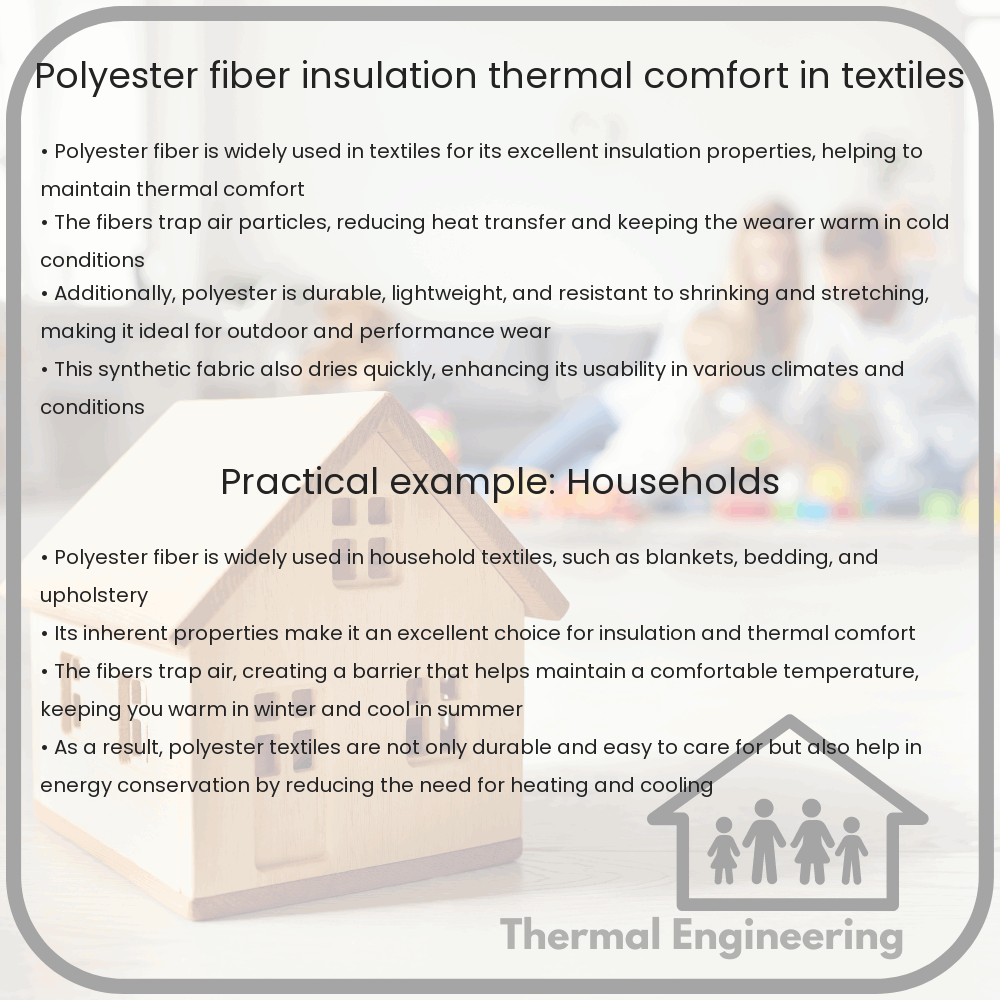Learn about polyester fiber’s role in insulation and enhancing thermal comfort in textiles, including its properties, uses, and environmental impact.

Understanding Polyester Fiber: A Key Material in Insulation and Enhancing Thermal Comfort in Textiles
Polyester fiber is one of the most versatile textile fibers used today, owing to its unique properties like strength, durability, and resistance to stretching and shrinking. In this article, we will dive into the characteristics of polyester that make it suitable for insulation and enhancing thermal comfort in textiles.
Properties of Polyester Fiber
Polyester is a synthetic fiber, derived from a chemical reaction involving petroleum, air, and water. This process leads to the formation of a polymer, which is then spun into fibers. Due to its synthetic nature, polyester fibers exhibit a wide range of physical and chemical properties which can be manipulated according to its intended usage. One of polyester’s main advantages is its hydrophobic nature, allowing it to repel water, thereby drying quickly. Moreover, it is highly durable and retains its shape well, making it an ideal choice for robust clothing and textile applications.
Polyester in Insulation
One of the prominent utilizations of polyester fiber is in the field of insulation. The structure of polyester fibers can trap air particles, creating an insulating barrier. This is particularly advantageous in building insulation and for winter garments, where warmth retention is critical. Polyester insulation is often compared with natural fibers like wool, as well as other synthetic fibers, for its effectiveness in maintaining comfortable indoor temperatures and reducing energy costs.
Thermal Comfort in Textiles
The concept of thermal comfort in textiles primarily deals with how textiles affect the heat exchange between the human body and its environment. Polyester plays a significant role in thermal comfort by balancing insulation and breathability, which maintains the wearer’s comfort in a variety of climates. Polyester fibers can be woven tightly in order to increase warmth or loosely to boost air circulation, demonstrating polyester’s adaptability in producing seasonal clothing.
Applications of Polyester Fiber in Everyday Life
- Clothing: Due to its chemical and thermal resistance, polyester is widely used in clothing. Its ability to withstand various climates and low maintenance makes it particularly attractive for outdoor wear.
- Home Insulation: Polyester batts are commonly used for thermal insulation in walls and ceilings in homes. It is non-toxic and less itchy compared to other insulating fibers, making it safer and more comfortable to install.
- Sleeping Bags and Outdoor Gear: The insulating properties of polyester are perfect for sleeping bags and outdoor gear which require maintaining warmth in colder conditions.
- Automotive and Acoustic Insulation: Polyester fibers are also significant in automotive parts and acoustic panels, where they provide temperature control and sound absorption.
Environmental Impact and Sustainability
Despite its wide applications and benefits, the environmental impact of polyester is significant due to its petroleum-based origin. The production of polyester uses large amounts of energy and water, and it is non-biodegradable. However, steps are being taken to mitigate these effects with the development of recycled polyester, which is made from existing polyester fabric and PET bottles. This not only reduces dependence on raw materials but also decreases waste and energy consumption.
In conclusion, polyester fiber is integral in the field of insulation and ensuring thermal comfort in textiles, with a broad spectrum of applications ranging from everyday clothing to specialized industrial materials. While it offers numerous benefits like durability and moisture resistance, the journey towards sustainable practices in its production is still progressing.